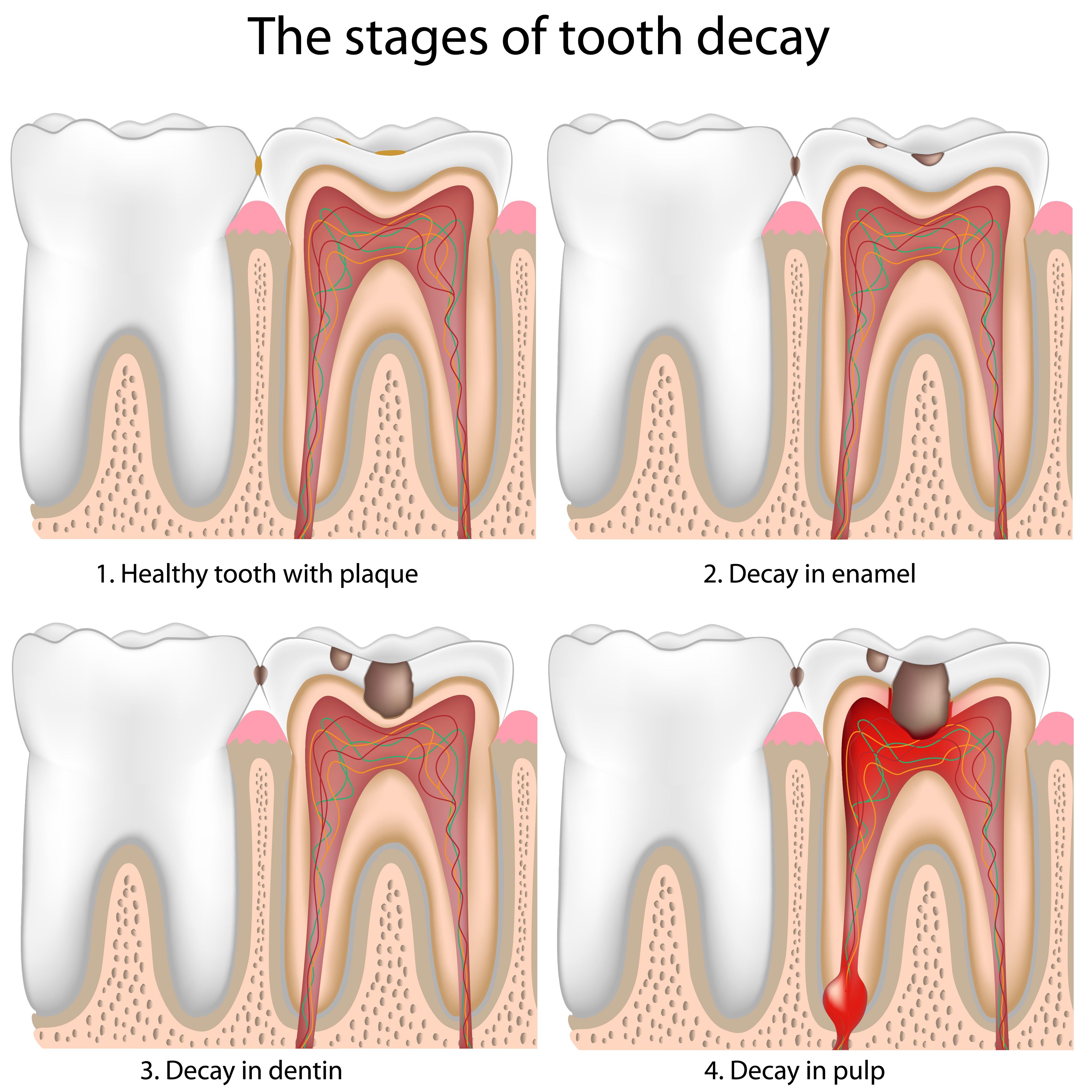Treating the Progressive Stages of Tooth Decay
 One of the most common threats to the health of the teeth is tooth decay. Tooth decay destroys healthy tooth structure and leaves the tooth vulnerable to a number of other dental complications, including infection and tooth loss. Restorative dentistry treatments repair damage to the teeth to restore oral health. However, the specific restorative treatment that will be most appropriate in each situation is dependent on what degree of damage is present.
One of the most common threats to the health of the teeth is tooth decay. Tooth decay destroys healthy tooth structure and leaves the tooth vulnerable to a number of other dental complications, including infection and tooth loss. Restorative dentistry treatments repair damage to the teeth to restore oral health. However, the specific restorative treatment that will be most appropriate in each situation is dependent on what degree of damage is present.
Tooth decay is a progressive condition that develops in stages. At Advanced Dentistry of Blakeney, we treat the various stages of tooth decay to restore smiles for our Charlotte, NC patients and prevent more advanced oral health problems.
The Progression of Tooth Decay
Tooth decay, as with most oral health problems, is a progressive condition. What this means is that, if left untreated, decay will continue to advance and cause more damage to the teeth. Regular dental exams and check-ups are vital to the timely detection and early treatment of tooth decay. Patients who maintain a schedule of biannual dental exams and cleanings are far less likely to develop advanced stages of tooth decay.
However, if decay does continue to progress, there are still treatment options available to restore the teeth. Below are the four progressive stages of decay, along with the most appropriate treatment options for each degree of damage:
Plaque Buildup
Plaque buildup is considered the first stage of tooth decay, even though tooth structure may still be intact. While plaque may not immediately damage tooth enamel, it will begin to destroy tooth structure if it is not removed. Tooth brushing is great for reducing bacteria and food particles on the teeth. Unfortunately, with time, plaque hardens into tartar, which is difficult to remove with brushing and flossing alone. The most effective treatment for plaque buildup is a professional dental cleaning. A routine cleaning can rid the teeth of plaque and prevent damage from tooth decay.
Decay of Tooth Enamel
As tooth decay progresses, it will damage healthy tooth structure. Since enamel is the outermost layer of the tooth, it is the first to be damaged. Decay in the tooth enamel not only weakens the tooth, but also leaves the more sensitive inner layers of the tooth vulnerable. In most cases, decay in the tooth enamel can be treated with a filling. However, an inlay or onlay may be necessary if the area of decay is larger.
Decay of Dentin
Dentin is the layer of tooth structure directly beneath the enamel. As decay progresses, it is the next to be damaged. The dentin serves as the last layer of protection for the pulp of the tooth (where the nerves lie), so it is imperative to treat a tooth with decay in the dentin. A larger restoration, such as an inlay or onlay, may be able to restore a tooth with this degree of decay, but it is more likely that a dental crown will be necessary.
Infection of the Tooth Pulp
The most advanced stage of tooth decay affects the center of the tooth, or the pulp. The tooth’s pulp is a collection of sensitive nerves and tissues. When decay reaches this area of the tooth, a root canal infection occurs. While a root canal infection can lead to tooth loss, the natural tooth can be saved with appropriate treatment. To treat a root canal infection, we perform root canal therapy, which removes all infected nerves and tissues from the center of the tooth. As a final step of precaution, a dental crown will be placed to provide an added layer of strength and protection.
Schedule an Appointment
Whether tooth decay is just beginning, or has reached its most advanced stages, professional dental treatment is key to restoring oral health and strength. If you are concerned about the health of your smile, schedule an appointment with one of our experienced dentists at Advanced Dentistry of Blakeney at your earliest convenience to learn more about our restorative dentistry services.


